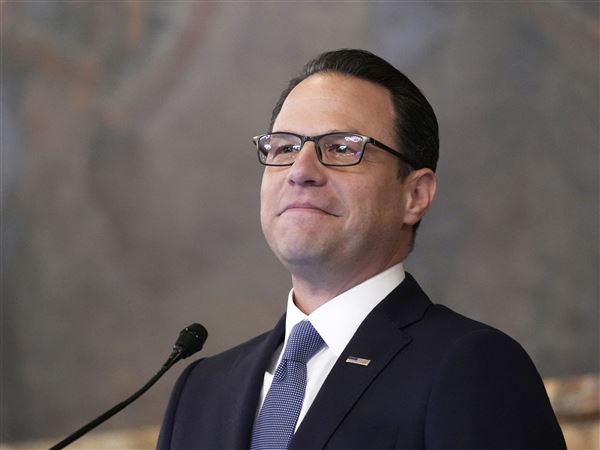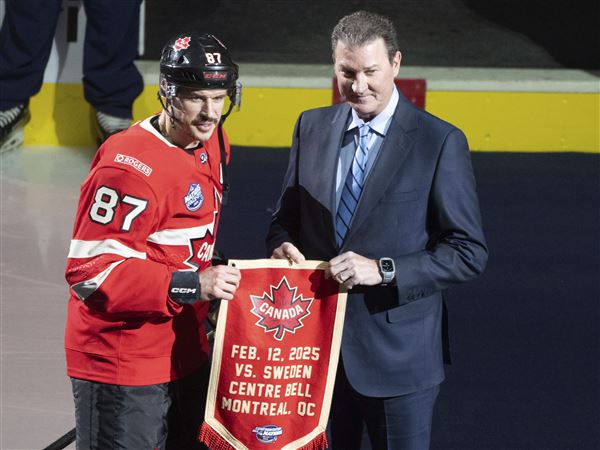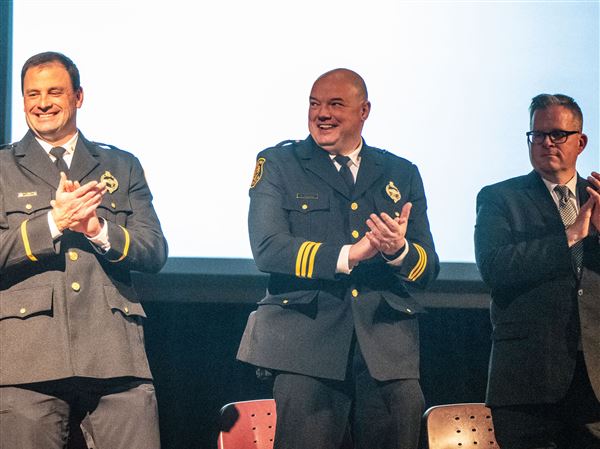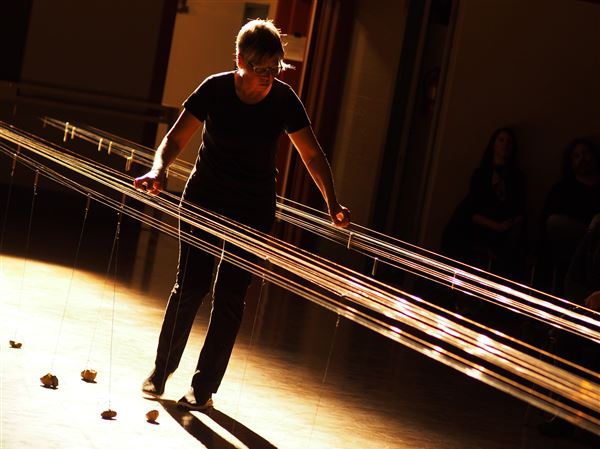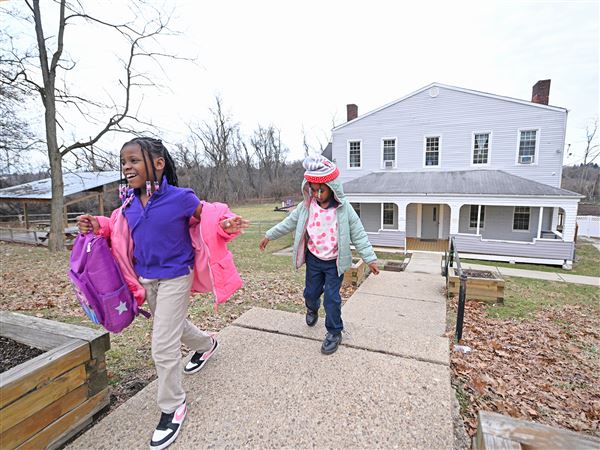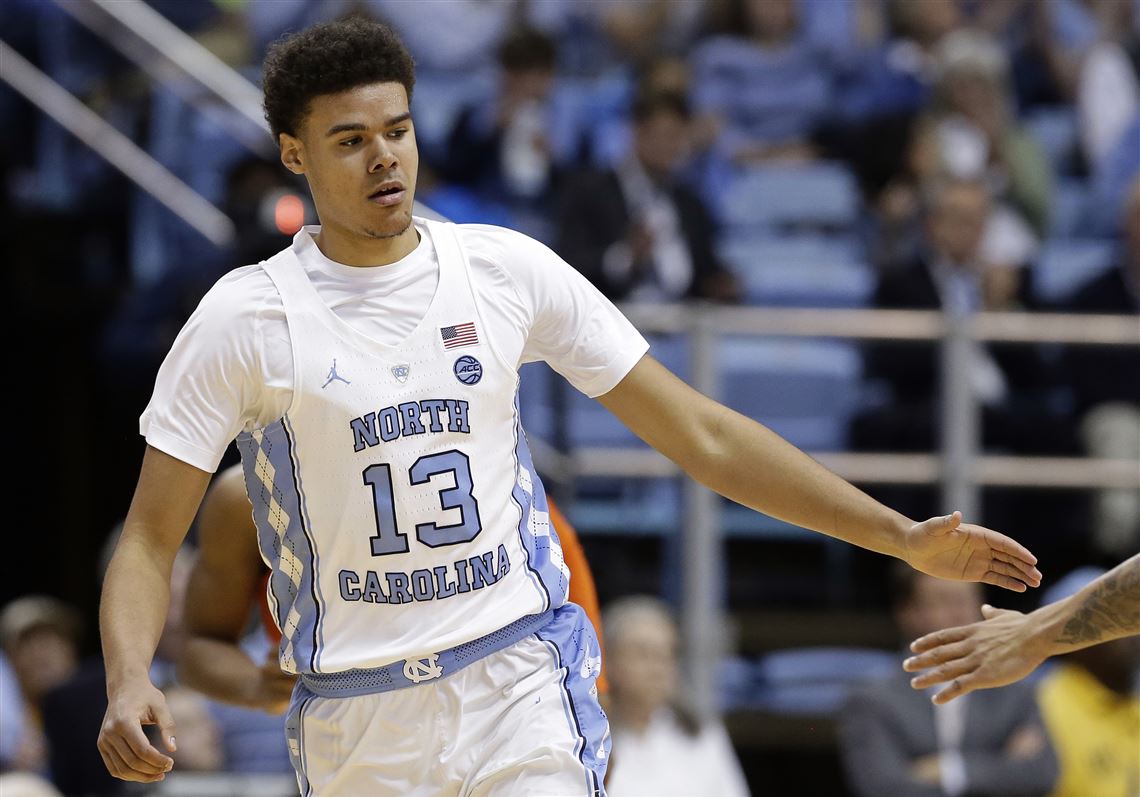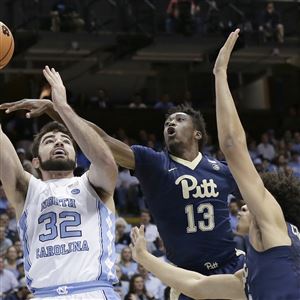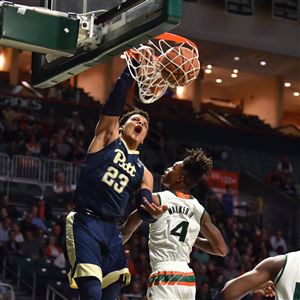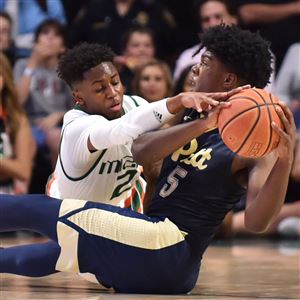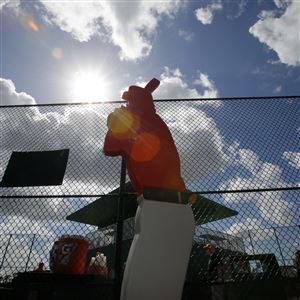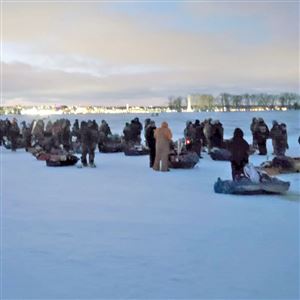Jared Wilson-Frame and Cameron Johnson never got the opportunity to play together, existing only for five months as a hypothetical pairing. During that time, though, from when the former committed to Pitt until the latter opted to transfer, the two developed a bond and friendship.
“Once you get to really high-level basketball, there’s really just a mutual respect with everybody and all the players,” Wilson-Frame said. “You’re not going to dislike a guy because he’s good at basketball.”
Of course, with Johnson, it’s not quite that simple.
Only two scholarship players on Pitt’s current roster played last season with Johnson, but everyone associated with the program knows his story. After a breakout redshirt sophomore season with the Panthers, Johnson, a Moon native, graduated and decided to transfer, a convoluted and contested process that ultimately landed him at North Carolina, where he now is third on the team in scoring at 12.7 points per game.
Saturday, when the Panthers and Tar Heels match up, he will face his former team for the first time since the dust settled from that saga, and players such as Wilson-Frame will get a close and extended look at the teammate that could have been — not that they’re thinking much about it, anyway.
“We’re preparing to play against North Carolina,” Wilson-Frame said. “He happens to play for North Carolina.”
Johnson, through a North Carolina spokesperson, was not made available for interviews in the lead-up to Saturday’s game. Unlike how it has been at almost every media event this season, coach Kevin Stallings was not made available Friday at Pitt’s scheduled news conference.
Johnson’s decision to transfer and all that followed thrust a Pitt program coming off a listless 16-17 season into the headlines for many of the wrong reasons.
After weeks of consideration, North Carolina emerged as the destination of choice for the 6-foot-8 guard/forward, but with that preference came restrictions. Pitt ruled that Johnson, a graduate transfer who under NCAA rules normally would be immediately eligible, couldn’t transfer to a school within the ACC without sitting out one season. Growing media attention around the case, spearheaded by ESPN analyst Jay Bilas, put public pressure on Pitt to reverse its stance, and eventually, an NCAA interpretation of the ruling forced the school to do just that.
Months after the case ended, Stallings expressed some distaste for how it all transpired, taking particular exception with how he was portrayed by some as a villain holding his former player back.
“I didn’t make the policy that exists for the entire University of Pittsburgh athletic department,” Stallings said in October at ACC media day. “I’m just the basketball coach, a new basketball coach at that. Sometimes you guys [the media] get a bad rap, right? Sometimes, that’s why.”
As the two schools were engaged in a standoff, it presented what could have become a wedge in the close relationship between Stallings and Tar Heels coach Roy Williams, under whom Stallings worked as an assistant coach at Kansas from 1988-93.
That theoretical strain never materialized. The two spoke early in the process about it, and Stallings informed him of the athletic department’s intra-conference transfer policy. After that, Williams said, the two never spoke of it again, meaning that on Saturday, they’ll line up on opposing sidelines with the same feelings toward each other as they would have were Johnson still wearing navy blue and gold.
“I let the athletic department staffs do what they thought was right and both universities do what they thought was right,” Williams said Monday on the ACC men’s basketball coaches’ teleconference.
As time has passed, the move hasn’t been forgotten, but the sentiments around it have cooled. Both teams are products of Johnson’s decision — North Carolina better because of it and Pitt worse — though for a Panthers team with 11 new players, it was as if they lost something they never really had.
He is, to the majority of the Pitt team, a believable part of a cliché to which they cling — just another player on another team they’ll treat and scout the same as they would an opponent with no history or ties to the program. To those who know him, though, there’s still a connection that, even in the heat of competition, can’t exactly be forgotten.
“We haven’t talked much since the season started, but when I see him, it’s all love,” Wilson-Frame said. “When I first came here on my visit and even when I saw them later on, there was always mutual respect. He’s a cool guy. A really cool guy, actually.”
Craig Meyer: cmeyer@post-gazette.com and Twitter @CraigMeyerPG.
First Published: February 2, 2018, 11:09 p.m.
